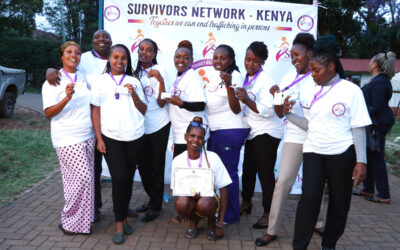The countries where Free the Slaves works (Ghana, India, Haiti, Nepal and Dominican Republic) have not reached peak level in the COVID-19 pandemic. But it is affecting them all, directly or indirectly. And we know from experience that every crisis has an aftermath.
Our commitment to victims and the vulnerable is continuing and adapting to local realities. Staff teams and partner organizations in most Free the Slaves countries have been forced to curtail field work in villages and neighborhoods to protect staffers and the community members they serve. In Haiti, we are distributing health information in villages where public gatherings are still allowed. Even where community education and mobilization work is on hold, case work support for individuals continues.
Our staffers are also preparing for a surge of grassroots activity as soon as the pandemic passes. Previous natural disasters such as droughts, floods, hurricanes and earthquakes have taught us that the aftermath always includes a spike in human trafficking.
I was in India just two weeks ago, visiting a village that Free the Slaves has helped become slavery-free and slavery-resistant. I could feel the bond we had built, the bridge to freedom that happens when communities with resources support communities plagued by modern slavery. We must not let that bond be broken.
Of course, at the moment everyone is understandably focused on their own health, their families, their coworkers and their communities. But thinking ahead, we will need to pull together again to help those in slavery. The socially, politically and economically disadvantaged always suffer worst in a crisis.
I will keep you posted with situation updates and plans for the future. For the latest news, you can follow our field updates on Facebook, Instagram, Twitter and LinkedIn. Please reach out to us at info@freetheslaves.net with any suggestions and concerns.



